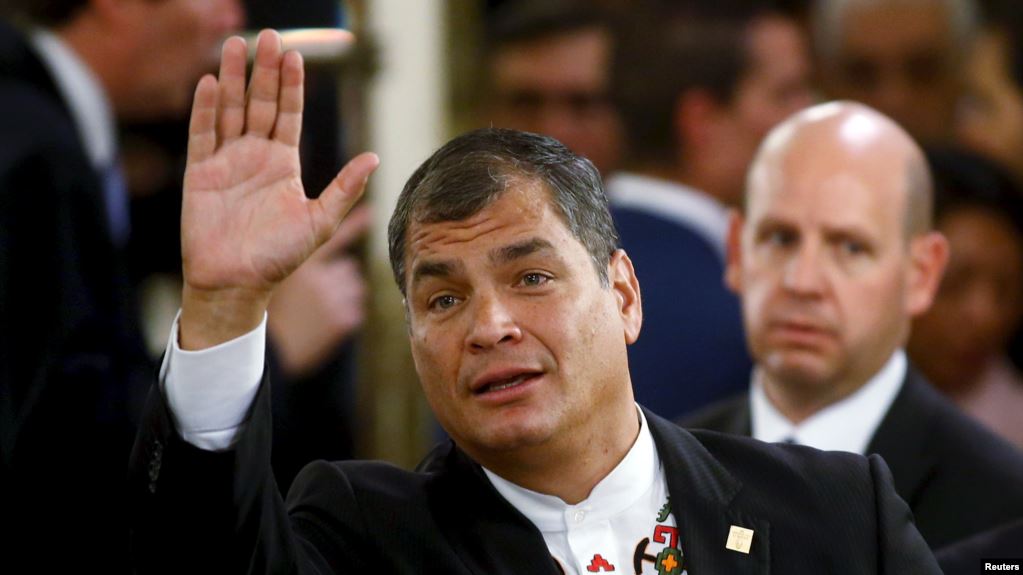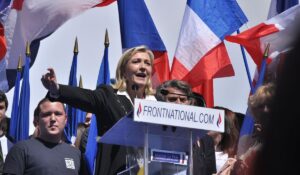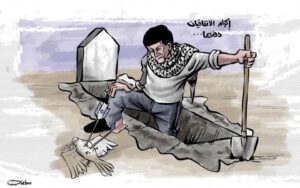Neeraj Jain
On the night of Sunday, October 12, the people of Ecuador were out on the streets, celebrating a major victory after 11 days of continuous protests in which hundreds of thousands of people had participated, despite massive police repression. The celebrations followed an announcement by the government of President Lenin Moreno that it was withdrawing Decree 883 under which it had imposed a deeply unpopular package of neoliberal reforms. These reforms were a part of a $4.2 billion loan agreement with the IMF. The withdrawal of the decree took place following talks between representatives of Indigenous movements and organizations and the government team, which included Moreno himself.
Of course, the people have only won Round One against the Moreno government, as the government is definitely going to implement more reforms in the coming days, backed by the IMF and the US-led imperialist powers. This is obvious from the fact that soon after making the concession, the government arrested key leaders of Citizen Revolution, a group founded by former president of Ecuador Rafael Correa and which is one the groups leading the mass protests in Ecuador. The government has accused them of causing violence during the protests. The arrests are an obvious attempt to divide the masses taking part in the protests, as both the indigeneous people of Ecuador led by CONAIE (Confederation of Indigenous Nationalities of Ecuador), an organisation representing Ecuador’s Indigenous nationalities and peoples, and Citizen Revolution have jointly led the protests, and Moreno has sought to divide the movement by appearing soft towards the indigenous people. Moreno claimed that he has “always respected Indigenous people” and “treated them with care” but then went on to say that the rest of the people protesting are violent and bad, those that “created chaos and an apocalyptic situation”. Moreno even resorted to the tired tropes of accusing the ‘violent’ protesters of having links to drug trafficking, being foreigners and employing tactics used by guerrilla groups in Colombia. He also reiterated the claim that they were instigated by Rafael Correa and his followers. The president of CONAIE, Jaime Vargas, immediately denounced the arrests, criticised the government for seeking to divide the protesters, and highlighted the unity on the streets.
The latest explosion of mass protests in Ecuador began after the government’s announcement on October 1 of a series of new economic measures to reduce “wasteful” public spending and further balance the budget. The most controversial measure was the complete elimination of fuel and petrol subsidies, in place since the 1970s, directly contributing to a 123% rise in the price of diesel and similar increases for other fuels.
Furthermore, the package introduced a 20% cut in public employee salaries and the initiation of plans to privatise pensions and remove safeguards for workers’ conditions and job security.
Foreseeing the likelihood and magnitude of protests against his government, Moreno declared a “national state of emergency” and deployed the police and military against protests in the capital, Quito, and other areas.
But the people did not bow before this repression, and right from the very next day, October 2, tens of thousands were out on the streets, defying the emergency. Leading the protests were former president Rafael Correa’s Citizen Revolution Movement (MRC), the Popular Front (FP) political party, and social and trade union organisations, such as the United Workers’ Front (FUT) and the Confederation of Indigenous Nationalities of Ecuador (CONAIE).
The next day, October 3, both transport workers’ unions and the taxi drivers’ associations announced strike action, bringing several cities around the country to halt, among them Quito and Cuenca.
Tens of thousands of workers, students, Indigenous people, peasants, Afro-descendant people, women and citizens came down from all over Ecuador and took over the streets of Quito, Ecuador’s capital city. So intense were the mobilisations that President Moreno fled the capital and shifted the seat of government to Guayaquil.
Similar mobilisations took place in several provincial cities. The province of Pichincha was converted into the epicentre of popular struggle, with more than 10,000 people taking part in the strike and protests.
The MRC criticised the state of emergency as being unconstitutional, as it lacked any specific parameters regarding proportionality, legality, temporality, territoriality and rationality (as mandated in the constitution). The people realised that it was only a measure to prevent a repeat of the mass uprisings in major cities that overthrew the neoliberal governments of Jamil Mahuad in 2000 and Lucio Gutiérez in 2005. Moreno was following down the same path.
Moreno has attempted to consistently discredit previous President Correa’s highly successful and popular economic strategy of combining increased social spending with public investment in major infrastructure and energy projects, and the diversification of the economy away from oil.
Instead, his government has pursued an IMF-mandated package of reforms, including the dismissal of thousands of public sector employees, reducing the size of the public sector, initiating privatisation (particularly the public banking services) and cuts to education and healthcare.
Consequently, levels of poverty and inequality have significantly risen under Moreno’s government. According to official figures, structural poverty rose from 23.1% in June 2017 to 25.5% in June this year, with some economists projecting that it will reach 30% by the end of the year, if the new economic measures are enacted.
Extreme poverty has risen from 8.4% to 9.5% during the same period. Furthermore, the Gini coefficient for economic inequality has risen from 0.462 in June 2017 to 0.478 in June this year, reflecting Moreno’s policy of reducing social spending principally to benefit the rich.
The country has witnessed a continuous breakdown of constitutional law, such as the persecution of the former vice-president Jorge Glas on dubious charges, the censorship of critical media, the “INA Papers” scandal and discovery of secret off-shore bank accounts linked to Moreno’s family. The newly elected Council of Citizens’ Participation and Social Control was dismissed and Ecuador also withdrew from the Union of South American Nations and the Organization of the Petroleum Exporting Countries.
There has also been a political witch-hunt against Correa and other leaders of the MRC, such as former foreign minister Ricardo Patiño and former deputy Sofia Espin.
Moreno had won the Presidential elections in Ecuador in 2017 as a close supporter of Rafael Correa. But after coming to power, he made a complete U-turn and began implementing neoliberal economic policies. Ever since then, the country has been on a boil, with people protesting the reversal of all the gains made by them during the ten years of Correa’s presidency. The latest package of neoliberal reforms was the last straw that broke the camel’s back, and saw people all over the country rising in defiance.
On October 8, 2,000 protesters from different Indigenous, peasant and social organizations and trade unions occupied the Ecuadorian Assembly and held a People’s Assembly. They too were brutally repressed by the national security forces, who threw tear gas and shot rubber bullets at the demonstrators. Several dozens who participated in this action were arrested and processed.
Unable to quell the protests, the police began using live ammunition against the protesters, leading to several deaths. Thousands were injured, and the police made several thousand arrests. Yet the protests did not stop, finally forcing President Moreno to backdown and begin negotiations, leading to the withdrawal of Decree 883.




